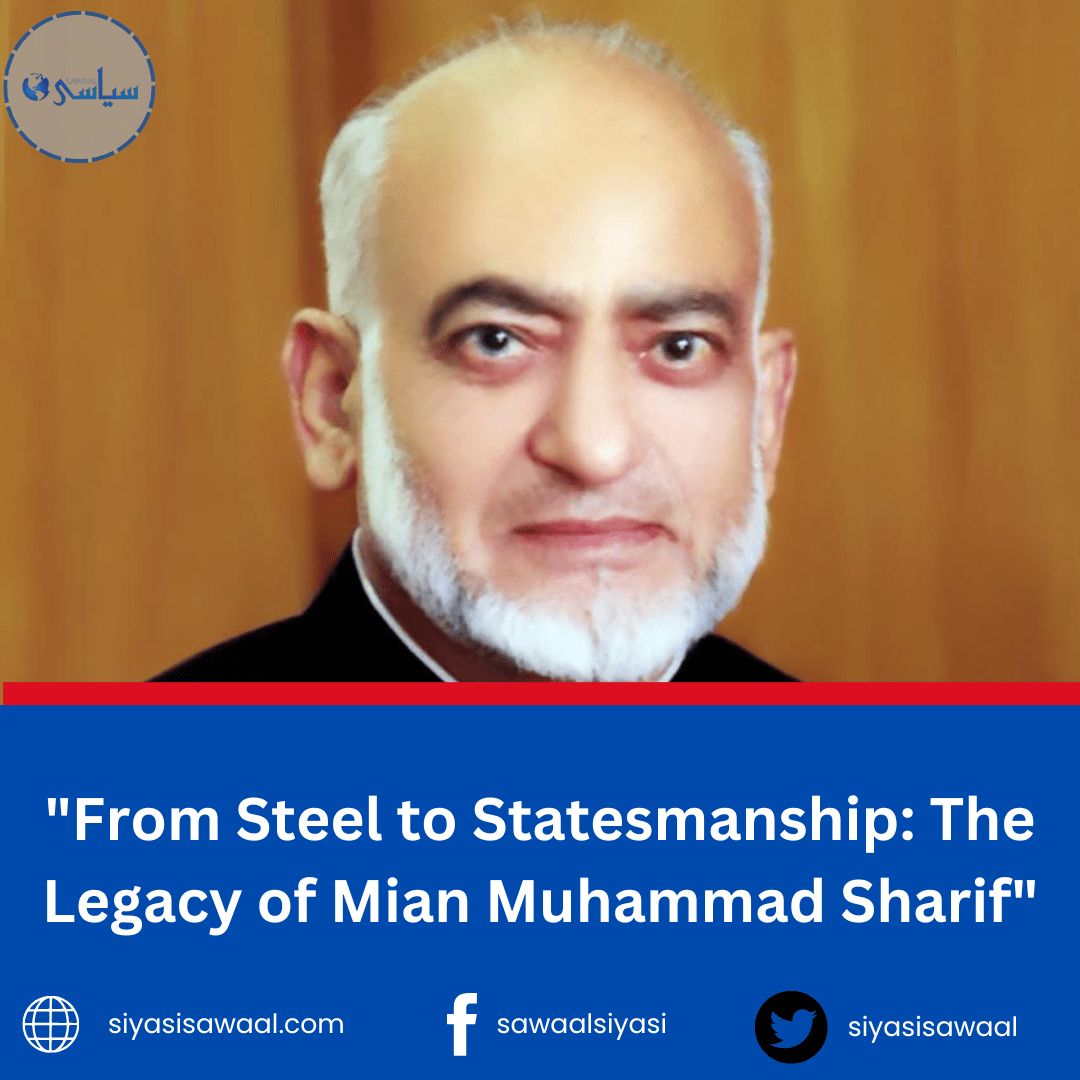Mian Muhammad Sharif
was one of the greatest businessman of Pakistan. he born into a Punjabi-speaking, Kashmiri immigrant family in Jati Umra, near Lahore, Mian Muhammad Sharif started his journey by setting up the Ittefaq Foundry in 1939, which was the beginning of the Sharif family’s legecy. His emergence from humble beginnings into the owner of one of the biggest industrial groups in Pakistan set the base on which his sons Nawab and Shehbaz Sharif would rise to eventually become leading political figures.
Early Business Ventures
In 1939, Mian Muhammad Sharif started his business career by setting up a small iron-melting furnace in Lahore. The Ittefaq Foundry initially traded in cast-iron pieces and grew rapidly. By the 1960s, the Sharif family had more than half a dozen factories and mills, one of which included the Ittefaq Mills. His business, however, received a strong blow when, in 1972, Zulfikar Ali Bhutto’s government nationalized Sharif family’s industrial assets, including the Ittefaq Foundry.
To this, Sharif changed base to the Middle East and established the Sharif Group of Industries in Dubai. It was part of his bigger scheme of shifting his industries with him outside of Pakistan in reaction to the nationalization setbacks.
Political Influence and Return to Pakistan
The fortunes of the Sharif family began to reverse in 1977, with the overthrow of Bhutto’s government by General Zia-ul-Haq. Many of the nationalizations were reversed by the military regime, which in 1978 returned the Ittefaq Foundry to the Sharifs. Mian Sharif was back in business, and this time around, his business empire would help launch his son Nawaz Sharif into the political limelight. In 1981, Nawaz was made finance minister in the Punjab provincial cabinet by General Zia.
By the late 1980s, they made a comeback with a vengeance. In due course, the rising political clout of Nawaz Sharif backed by the industrial might of his family emerged as one of the key determinants in the political scenario of Pakistan.
Challenges During Benazir Bhutto’s Administration
Apart from political success, the Sharif family got political resistance from the ruling government due to Benazir Bhutto. The administration of Benazir in the late 1980 tried to weaken the business of the Sharif family by forbidding the transportation of raw material into the Sharif family factories. Consequently, Ittefaq Foundry was compelled to lay off hundreds of workers, but the Sharif family braved those storms and emerged to grow stronger.
Family and Legacy
He was married to Shamim Akhtar, from whom he received three sons named Nawaz, Shehbaz, and Abbas Sharif. His sons Nawaz and Shehbaz emerged as strong entities in the political scenario of Pakistan, out of which Nawaz went on to serve as the prime minister of Pakistan three times, while Shehbaz would go on to stay the Chief Minister of Punjab. Mian Sharif’s legacy continued with his sons, who remained two of the powerful entities in the political and business circles of Pakistan.
Later Years of Life and Death
It was in the 1990s that the Sharif family was once again sent into political exile by the then-military ruler, General Pervez Musharraf. Mian Sharif died of a long-ailing heart problem on October 19, 2004, in Jeddah, Saudi Arabia; he was 84 years old. His funeral prayer was offered in Mecca and later brought and buried at Raiwind, Lahore.
Mian Muhammad Sharif was a prominent Pakistani businessman and philanthropist, best known for his contributions to the textile industry. Born in 1922 in the Punjab region, Sharif founded the Ittefaq Group of Companies, which grew into one of the largest conglomerates in Pakistan. He was also deeply involved in the development of various sectors, including engineering and construction.
Beyond business, Mian Sharif was recognized for his commitment to education, healthcare, and social welfare, often donating to various charitable causes. He was the father of Nawaz Sharif, a former Prime Minister of Pakistan. Mian Sharif passed away in 2004, leaving behind a legacy of entrepreneurship and community service.
